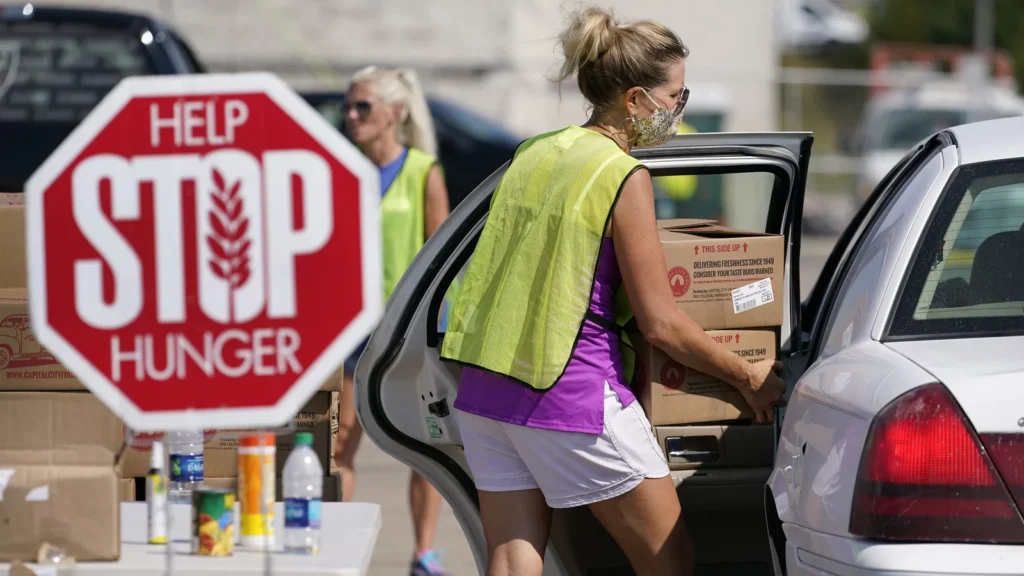By Ximena Bustillo for NPR
The Biden administration wants to end hunger and food insecurity in the U.S. in eight years, an ambitious goal the president set in May – and he’s hosting a big conference in late September to get things started.
It will be the first conference on hunger, nutrition and health since 1969. That Nixon-era conference influenced the food policy agenda for the last 50 years, leading to the creation of big food programs we know today, like food stamps and child nutrition assistance.
“The president sets out to do the same with this year’s conference,” the White House said.
But some are worried the administration won’t be able to meet the high bar of expectations set by the 1969 conference.
“I think it’s a completely different ballgame,” said Lisa Davis, senior vice president of the No Kid Hungry campaign, one of many groups meeting with the White House as it develops the Sept. 28 conference agenda.
That’s because planning for the two conferences has been vastly different. Two months after Congress passed a bill mandating that the White House host it by the end of the fiscal year, Biden announced it would happen in September. That gave the administration just three months total to prepare. By contrast, Nixon prepared for six months. Some with knowledge of conference planning worry that the short turn around and the fact that the White House has taken months to announce when exactly next month the conference will take place will hurt the administration’s ability to have a policy-changing event.
“I think the follow up is going to be really important,” Davis said. “We’re really hopeful that this doesn’t lead to a very impressive white paper that sits on the shelf and or the outlook file and just gathers dust and it’s forgotten about.”




